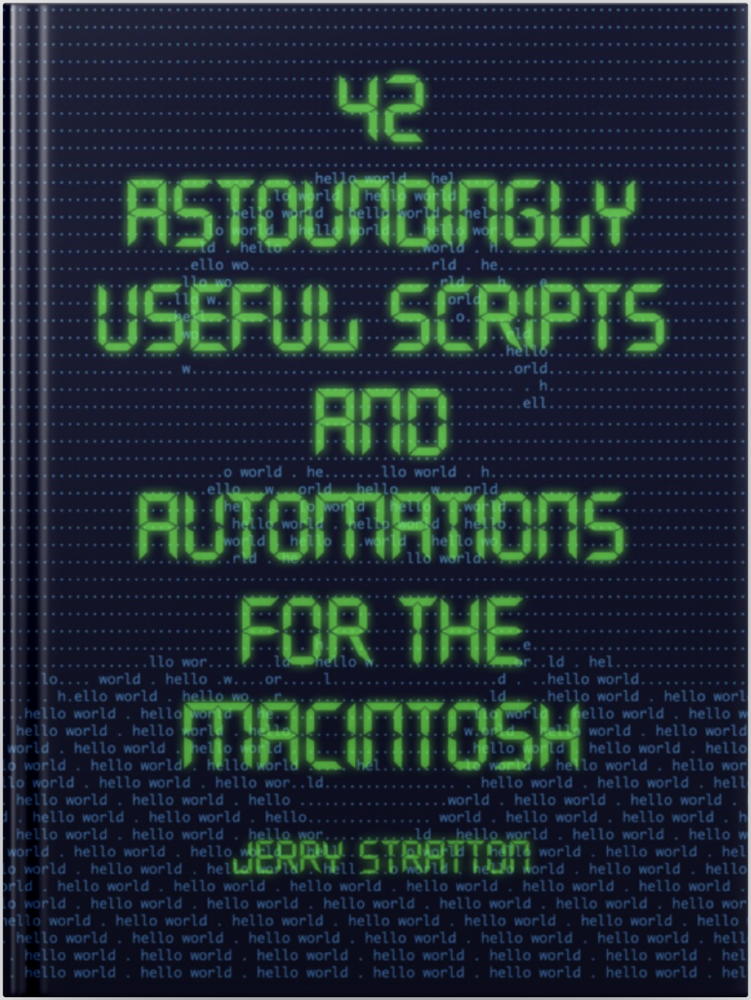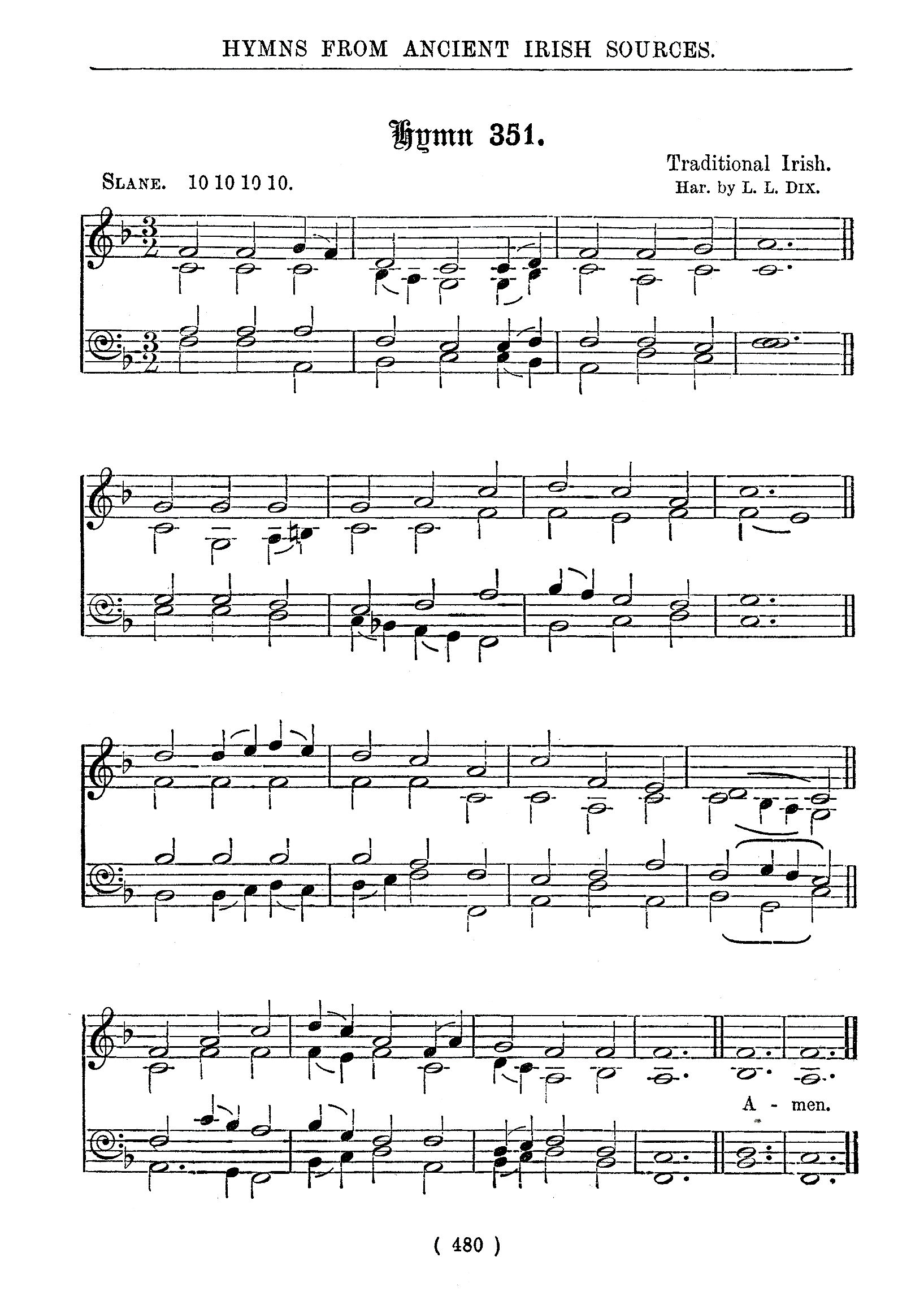There are many inspirational hymns in the Christian world, but there is only one Amazing Grace. It is by far one of my favorite hymns. The story of how and why John Newton wrote the lyrics is itself amazing.
So of course I had to make a file to play it using the piano script. I highlighted it in 42 Astoundingly Useful Scripts and Automations for the Macintosh•, but I wanted to go over it a little further here, and also talk about using it (and other MIDI files) in GarageBand.
[toggle code]
- # Excell, Edwin O., 1900
- # Rev. John Newton
- --key F
-
# line 1 bass
- [-- "F +F" | 2 "F C" [8 F A] 4 +F | 2 "C +F" 4 "C +E" | 2 "+D +F" 4 "B +F" | 2 "A +F" 4 "A +F"]
-
# line 1 treble
- - "A C" | 2 "A +F" [8 + A F] 4 C | 2 "C +A" 4 "B +G" | 2 "A +F" 4 "B D" | 2 "A C" 4 "A C"
-
# line 2 bass
- [-- 2 "F C" [8 F A] 4 +F | 2 "C +F" 4 "B +E" | 2 "A. +F." 4 "F +F" | [4 + A. 8 F A F] 2 F 4 F | 2 "A +F" 4 "A F"]
-
# line 2 treble
- 2 "A +F" [8 + A F] 4 C | 2 "C +A" 4 "C +G" | 2 "C. +C." 4 "C +A" | [+ C. 8 A C A] 2 C 4 C | 2 "C +F" 4 "C C"
-
# line 3 bass
- [-- [B. 8 A B] 2 F 8 D +F | 2 "F +F" 4 "A +F" | 2 + "D F" [8 F A] 4 -C | 2 "-C F" 4 "-C E" | 2 "-F F"]
-
# line 3 treble
- "B. D." 8 "C +F" [+F D] 4 B | 2 "A C" 4 "C C" | 2 "A +F" 4 [8 + A F] C | 2 "C +A" 4 "B +G" | 2 "A +F"
You can just copy and paste this into your text editor and save it as a text file, say “grace.txt”, and then run piano on it:
- ~/bin/piano grace.txt
Some of the special features of piano that this melody uses is the ability to play simultaneous lines of notes. Each bass line here is surrounded in square brackets so as to play at the same time as the treble line that follows it. Within each line, you’ll see other square brackets. For example, “[8 F A] 4 +F” means that the F and A in square brackets are played as eighth notes; the “4 +F” that follows it is a quarter note F an octave higher played at the same time.
- The square brackets mean the F eight note starts at the same moment as the F quarter note.
- The 8 means the following two notes are an eighth note.
- The 4 means the following notes are quarter notes.1
- The + before the F raises that F an octave higher.
You’ll also see extensive use of dotted notes throughout the piece. See 42 Astoundingly Useful Scripts for more about the piano script.•
One of the useful reasons for putting your music in a file a line at a time like this is that it makes it easy to separate out the bass and treble clefs. This in turn makes it easy to assign them different instruments in GarageBand. Remember, when copying out the bass lines, to (a) remove the square brackets (or all lines will play at the same time) and to remove the double dashes in front of each line after the first (otherwise, it will drop the melody two octaves extra in the second line, and another two octaves in the third).
For this mp3 file, I’ve used a Steinway Grand for the treble clef, and a bass organ for the bass clef.
And for your listening pleasure, one of my favorite renditions of Amazing Grace:
The 4 isn’t needed because of the 8. Note durations inside of brackets do not propagate outside of the brackets. The 4 is needed because the notes preceding these two sets were half-notes.
↑
- 42 Astoundingly Useful Scripts and Automations for the Macintosh•: Jerry Stratton at Jerry Stratton on Amazon.com (paperback)
-
 If you have a Macintosh and you want to get your retro on, take a look at 42 Astoundingly Useful Scripts and Automations for the Macintosh. These modern scripts will help you work faster and more reliably, and inspire your own custom scripts for your own workflow.
If you have a Macintosh and you want to get your retro on, take a look at 42 Astoundingly Useful Scripts and Automations for the Macintosh. These modern scripts will help you work faster and more reliably, and inspire your own custom scripts for your own workflow.
- Amazing Grace at Wikipedia
- “Newton’s lyrics have become a favorite for Christians of all denominations, largely because the hymn vividly and briefly sums up the Christian doctrine of Divine grace. The lyrics are based on 1 Chronicles 17:16, where King David marvels at God’s choosing him and his house.”
- Amazing Grace (Excell)
- Amazing Grace, using the common Edwin O. Excell melody.
- Amazing Grace (Uncommon Melody)
- Amazing Grace, by John Newton, with melody by C.H. Warwick. This was apparently once a common melody for the song but is rarely heard now.
- Arlo Guthrie/Amazing Grace: Arlo Guthrie
- “The man might have lived a long time ago, but he’s a friend of mine tonight.” 1984.
More Amazing Grace
- Amazing Grace (Uncommon Melody)
- Amazing Grace, by John Newton, with melody by C.H. Warwick. This was apparently once a common melody for the song but is rarely heard now.
More Hymns
- Save That Thou Art
- High King of heaven, when vict’ry is won/May I reach heaven’s joys, bright heaven’s Sun!/Heart of my heart, whatever befall,/Still be my vision, O Ruler of all.
- Light a candle for Christmas hymns
- While the holidays brought more examples of bowdlerized lyrics they also brought, at least to our church, a lit candle for the darkness, in the form of a new hymnal that retains sound Catholic theology.
- The Soul Felt It’s Worth
- “A thrill of hope, the weary world rejoices…” What is a soul worth? For God, a soul is worth his son.
- Our parental unit, who art, somewhere, maybe
- God’s Blessing Sends Us Forth; We Are the Light of the World; With a Shepherd’s Care. Is there room for God the Father in the modern church? Are the bowdlerizers creating a first-contact crisis?
- Let mortal tongues awake
- Samuel Francis Smith’s America—more commonly known as “My Country, ’Tis of Thee”— is short, direct, and a wonderful hymn to God as the soul of liberty. It’s a perfect hymn for the Fourth of July. It’s also very easy to play using the piano script from 42 Astounding Scripts.
- Five more pages with the topic Hymns, and other related pages
More MIDI
- Save That Thou Art
- High King of heaven, when vict’ry is won/May I reach heaven’s joys, bright heaven’s Sun!/Heart of my heart, whatever befall,/Still be my vision, O Ruler of all.
- The Star-Spangled Banner in MIDI
- What could be more appropriate for the fireworks of the Fourth of July than a song about bombs bursting in air, illuminating a great flag rippling defiantly to a hostile world?
- O Little Town of Bethlehem
- How still we see thee lie. Play this song on your Mac’s command line with the piano script.
- I have read a fiery gospel
- “Be swift my soul to answer him, be jubilant my feet.” Written a hundred and fifty-nine years ago today, this rousing abolitionist song remains a fiery call for freedom from tyranny.
- How Great Thou Art
- Then sings my soul…
- Two more pages with the topic MIDI, and other related pages

